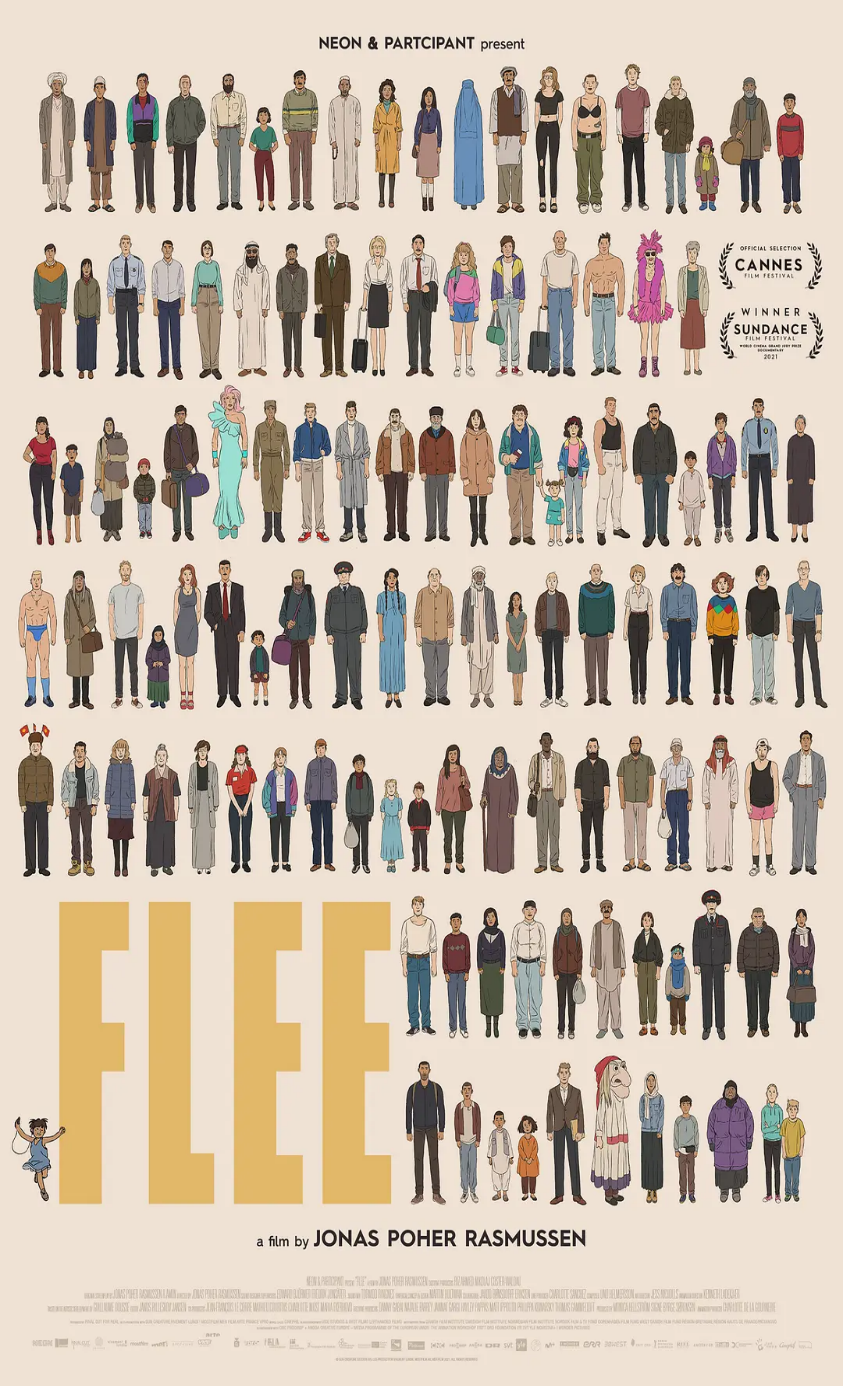Flugt An original animated documentary on refugees

Usually when it comes to animated films, we tend to think of Disney or Hayao Miyazaki’s works, but as a film genre, animated films are not only these stereotypes, but can also be used to express more diverse themes, such as oversized eroticism, with Yang Fan’s “Jiyuantai No. 7” being one of the more outstanding examples in recent years. Another recent and refreshing animation tells the story of a gay Afghan refugee, and because it’s a true story, the creators used this particular format for this amazing documentary to protect the identity of the person involved. We’ve seen many documentaries about Afghan refugees, but this one is a bit like “Midnight Walker” from a few years ago. It’s also about an Afghan family whose parents take their children from Afghanistan to the European continent after a long and difficult escape. The focus of this film is on the double label of the protagonist: refugee and homosexuality.
As far as I can remember, documentaries are rarely presented in animated form, as this tends to weaken the documentary content. This work obviously suffers from a similar problem, but this format combines a heavy and serious social background with private memories into a free-spirited atmosphere, such as the opening scene of the protagonist as a child listening to a song and jumping for joy in the streets of Kabul; it also leaves the audience with more room for imagination, such as the near death of the protagonist’s two sisters on a boat and the frightening memory of the storm he and his mother encountered at sea while stowing away. The film is an excellent restoration of episodes that are difficult to describe in documentaries. This animated form gives a fictional color to the documentary events, interspersed with the subjective recollections of the main character, which brings an unexpected sense of immersion and makes the story of the smuggling from Afghanistan to Russia, transit to Estonia, and finally arriving in Denmark with a twist and turn extremely compelling. In addition to portraying the protagonist’s difficult journey from Afghanistan to Europe, the film also highlights his double label: refugee and gay. As a smuggled refugee, he had to hide his true origins, and had to lie to immigration officials about the death of his family in order to gain sympathy to avoid deportation. But this memory of constantly repressing the truth led him to communicate with others with wariness and loss of trust, especially when his ex-lover had threatened to report him for cheating to obtain the refugee status. This self-repressed refugee status is implicitly linked to his sexuality. In Afghanistan homosexuality is forbidden to exist, and he never knew what it was about his preference for men, thinking it was a curable disease, until he fled to Europe and discovered the truth. The film depicts the immoral (lying) way refugees take to enter Europe, no doubt satirizing the loopholes in European immigration policies and the so-called messianic tone of Europeans. Compared to the cold-blooded snakehead traffickers and corrupt Russian police he encounters on the way to escape, the European refugee policy also makes the main character terrified and morally tormented, and he has to live a lie in order to get a new life. Fortunately, he has the full support of his family, which enables him to face his sexuality honestly, so that he can open his heart and find his own life in a foreign country. Although this documentary, which is animated, is titled “Escape”, the life of a wandering fugitive is not the life the protagonist wants. At the beginning, he analyzes the idea of “home” in his mind: a safe place, a place where he can stop and not need to run, a place that is not temporary. From the film’s perspective, this “home” is not a constant geographical concept, it can be in Afghanistan, but also in Denmark, Sweden, the United States …… to later the refugee family is forced to live in various parts of Europe. From the main character’s point of view, as long as he can find a happy and stable life, no longer need to repress the instincts of the place, that is his home, no matter how much he has to pay for this, he is willing to risk and try.




